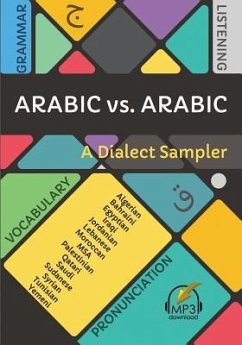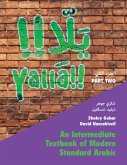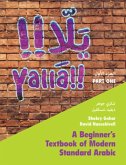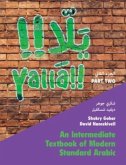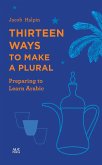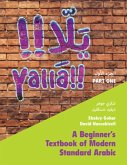Compare the vocabulary, pronunciation, and grammar of MSA and 14 dialects (Algerian, Bahraini, Egyptian, Iraqi, Jordanian, Lebanese, Moroccan, Palestinian, Qatari, Saudi (Hejazi), Sudanese, Syrian, Tunisian, and Yemeni). Free audio is available to download on our website. If you're learning Arabic, you've probably started with Modern Standard Arabic (MSA). Or perhaps a dialect? You might be learning both MSA and a dialect (or two!) in tandem. And you're certainly aware that there are many more dialects out there. It may seem daunting. But just how similar and different are they from one another? If you're curious, this book is for you. Arabic vs. Arabic: A Dialect Sampler lets you explore the vocabulary, pronunciation, and grammar of 15 varieties of Arabic (14 dialects and MSA) through tables with notes and free, downloadable accompanying audio. You can go through the tables in order or skip around the book to see what catches your attention. The book really is meant to be a sampler platter to give you a taste of each dialect and a better understanding of just how varied the various varieties of Arabic are. The layout encourages the self-discovery method of learning. While the notes under many tables identify points of interest, you are encouraged to find patterns, exceptions, innovative features of dialects, and universals by studying the tables and listening to the audio tracks.

